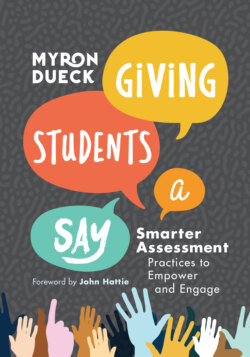Читать книгу Giving Students a Say - Myron Dueck - Страница 13
На сайте Литреса книга снята с продажи.
The Importance of Choice
ОглавлениеVoice and choice are arguably inseparable factors when looking at empowerment and engagement—and that goes for all of us. The 20th century saw an explosion of choice in areas ranging from careers and educational opportunities to food products and entertainment. In my lifetime alone, the expansion of choice has been both amazing and numbing. Growing up, I recall "channel surfing" the three available TV stations. I bet I watched The Sound of Music eight times because there was nothing else on—literally! My kids struggle to understand how I can possibly know the lyrics to "Do-Re-Mi." Limited choice in TV stations has a lot to do with my singing, "Fa, a long, long way to run." For all of you who now have that song in your head for the remainder of the day, you likely had limited choice also. Now I have hundreds of TV channels to choose from, and too many options for streaming.
Our students live in a world filled with contexts where choice is prevalent, but too often school is not one of them. In The Motivated Brain, Gayle Gregory and Martha Kaufeldt (2015) note how many of our youngest learners benefit from the exploratory nature of full-day preschool and kindergarten. They cite research, however, that suggests that much of the learning benefits enjoyed by these children, such as increased vocabularies and better social skills, are snuffed out by the time they reach high school due to the "sit and get" nature of grades 1 through 8 (Brownell et al., 2015). It's probably time to learn from our early learning colleagues and invigorate student learning by giving choice a more prominent place in the classroom.
In essence, there is little debate to be had on voice and choice. All you have to do is ask yourself: What role do voice and choice have on my own feelings of empowerment and engagement? Few of us would choose to exist in a cookie-cutter environment compared with one that valued our input and offered options.
